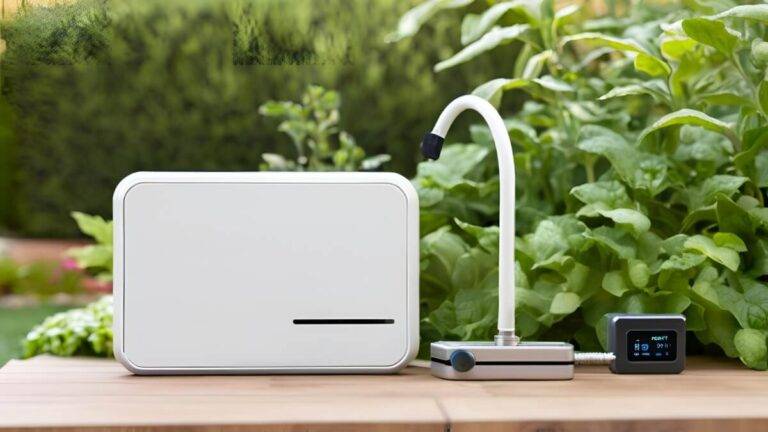Gardening is a rewarding pursuit, but it also comes with its challenges, especially when it comes to managing water usage. For many home gardeners, urban gardeners, eco-conscious individuals, permaculture practitioners, DIY enthusiasts, agricultural professionals, technology enthusiasts, and families, optimizing irrigation is crucial to maintaining a healthy, thriving garden. Enter smart irrigation systems—a game-changing technology designed to boost your garden’s efficiency and sustainability. In this comprehensive guide, we’ll explore how these systems work, their benefits, and how you can implement them to enhance your gardening efforts.
What Are Smart Irrigation Systems?
Smart irrigation systems represent a significant leap forward in garden technology. Unlike traditional irrigation methods, which often rely on manual adjustments and fixed schedules, smart systems use advanced technology to optimize watering based on real-time data. These systems incorporate sensors, weather forecasts, and automated controls to deliver water precisely when and where it’s needed.
How Do Smart Irrigation Systems Work?
Smart irrigation systems operate through a combination of sensors, controllers, and sometimes mobile apps. Here’s a breakdown of how they work:
- Sensors: These devices measure various environmental factors, such as soil moisture, temperature, and humidity. By collecting this data, sensors help determine the specific water needs of your plants.
- Controllers: The brain of the smart irrigation system, controllers process the data collected by the sensors and make real-time decisions about when and how much to water. Modern controllers often come with Wi-Fi capabilities, allowing for remote adjustments.
- Weather Data Integration: Many smart irrigation systems integrate with weather services to adjust watering schedules based on forecasted rainfall and temperature. This feature prevents overwatering during rainy periods and ensures efficient water use during dry spells.
- Mobile Apps: Some smart irrigation systems come with mobile apps that let you monitor and control your irrigation system from anywhere. These apps provide notifications, allow manual adjustments, and offer insights into your water usage.
Benefits of Smart Irrigation Systems
Smart irrigation systems offer numerous benefits, making them an attractive option for various types of gardeners:
- Water Conservation: By tailoring watering schedules to actual plant needs and weather conditions, smart systems reduce water waste, making them an excellent choice for eco-conscious individuals and those interested in sustainable gardening practices.
- Improved Plant Health: Consistent and appropriate watering helps maintain optimal soil moisture levels, leading to healthier plants and more robust growth.
- Cost Savings: Efficient water use translates to lower water bills. In the long run, smart irrigation systems can save you money by reducing unnecessary water usage.
- Convenience: Automated systems minimize the need for manual adjustments, allowing you to focus on other aspects of gardening. The ability to control your irrigation system remotely adds an extra layer of convenience.
- Adaptability: Smart irrigation systems can be adjusted to accommodate different types of plants and garden layouts. This flexibility makes them suitable for home gardeners, urban gardeners, and even large-scale agricultural operations.
Implementing a Smart Irrigation System
Setting up a smart irrigation system in your garden involves several steps. Here’s a step-by-step guide to help you get started:
- Assess Your Garden Needs: Evaluate your garden’s size, plant types, and existing irrigation setup. Understanding your garden’s needs will help you choose the right smart irrigation system.
- Choose the Right System: Select a smart irrigation system that fits your garden’s requirements. Consider factors such as sensor types, controller features, and compatibility with your existing irrigation infrastructure.
- Install Sensors and Controllers: Follow the manufacturer’s instructions to install sensors in various garden areas and connect them to the controller. Proper placement is crucial for accurate data collection.
- Connect to Weather Services: If your system supports weather data integration, configure it to connect with local weather services. This feature ensures your system adapts to changing weather conditions.
- Set Up Mobile App: Download the system’s mobile app and follow the setup instructions. Familiarize yourself with the app’s features to make the most of remote control and monitoring capabilities.
- Test and Adjust: Run tests to ensure your system is functioning correctly. Make adjustments as needed based on the data collected and your garden’s specific needs.
Tips for Maximizing the Benefits of Smart Irrigation Systems
To get the most out of your smart irrigation system, consider these tips:
- Regular Maintenance: Periodically check your system for any issues or malfunctions. Regular maintenance helps ensure your system continues to operate efficiently.
- Monitor Usage: Keep an eye on your water usage through the system’s app or controller. Monitoring can help you identify patterns and make adjustments for further optimization.
- Adjust for Seasonal Changes: As seasons change, your garden’s water needs may vary. Update your system’s settings to reflect seasonal adjustments and ensure continued efficiency.
- Educate Yourself: Stay informed about new advancements in smart irrigation technology. Innovations and updates can offer additional features and improvements for your system.
Frequently Asked Questions/FAQs
What are the benefits of using smart irrigation systems in my garden?
Smart irrigation systems offer numerous benefits, including improved water conservation by adjusting watering schedules based on real-time data, enhanced plant health through consistent moisture levels, cost savings by reducing water bills, and added convenience with automated and remote control features. These systems are ideal for home gardeners, urban gardeners, and eco-conscious individuals looking to boost their garden’s efficiency.
How do smart irrigation systems work to optimize water usage?
Smart irrigation systems use a combination of sensors, weather data, and automated controllers to optimize water usage. Sensors measure soil moisture and environmental conditions, while weather data integration adjusts watering schedules based on forecasted rainfall and temperature. Controllers process this information to deliver the precise amount of water needed, reducing waste and ensuring efficient irrigation.
Can I install a smart irrigation system myself, or do I need professional help?
Many smart irrigation systems are designed for DIY installation, with user-friendly instructions and components. However, the complexity of installation can vary based on the system and your existing setup. For straightforward installations, following the manufacturer’s instructions should suffice. If you have a large garden or a complex irrigation setup, consulting a professional might ensure optimal performance and integration.
Conclusion
Smart irrigation systems represent a significant advancement in garden technology, offering numerous benefits for home gardeners, urban gardeners, eco-conscious individuals, permaculture practitioners, DIY enthusiasts, agricultural professionals, technology enthusiasts, and families. By incorporating these systems into your gardening routine, you can enhance efficiency, conserve water, and promote healthier plant growth.
Embracing smart irrigation technology is a step toward a more sustainable and convenient gardening experience. Whether you’re looking to reduce water usage, save on costs, or simply enjoy a more efficient gardening process, smart irrigation systems offer a practical and effective solution. Invest in a smart irrigation system today and watch your garden flourish with improved efficiency and vitality.
Feel free to explore the options available and choose a system that best fits your needs. Happy gardening!









13 Comments
“Home Garden Live Advice Inc is now my go-to site for home gardening tips. The information is both helpful and easy to understand.”
Your home decor suggestions are fantastic. They’ve helped me refresh my space on a budget. Keep up the great work!
In this comprehensive guide, explore how these systems work, their benefits, and how you can implement them to enhance your gardening efforts.. The information is both helpful and easy to understand.
Smart irrigation systems represent a significant leap forward in garden technology. Unlike traditional irrigation methods, which often rely on manual adjustments and fixed schedules, smart systems use advanced technology to optimize watering based on real-time data.
Smart irrigation systems—a game-changing technology designed to boost your garden’s efficiency and sustainability.
This website is a treasure trove of information for anyone interested in home and garden care. The variety of topics covered is impressive, ranging from basic gardening tips to more advanced home renovation projects. I particularly enjoy the seasonal gardening advice—it’s always timely and relevant to what I’m experiencing in my own garden. The writing is clear and concise, making it easy to follow along, even for someone who’s new to these topics. I’m grateful to have found such a reliable source of information that I can trust!
Great Resource! – “I love how informative your articles are! They provide detailed advice that has truly helped improve my gardening skills. Keep up the great work!
This post on smart irrigation systems is a game-changer! The tips on boosting garden efficiency are so practical and easy to follow. I can’t wait to implement these ideas and save water while keeping my plants healthy. Thank you for such insightful and eco-friendly advice!
This guide to creating a cozy outdoor living space is wonderful! I’ve been wanting to transform my patio, and your tips have given me so much inspiration. Thank you for the helpful advice!
Pingback: Boost Local Air Quality: How Garden Design Can Help
Pingback: Tech's Impact on Watering Efficiency: Boost Your Garden
Pingback: Efficient Vegetable Garden Watering
Pingback: Gardening for a Sustainable Economy: Global Trends in 2024